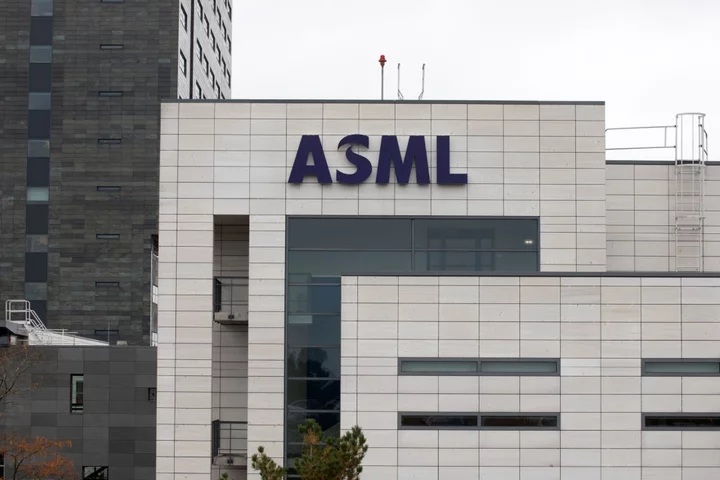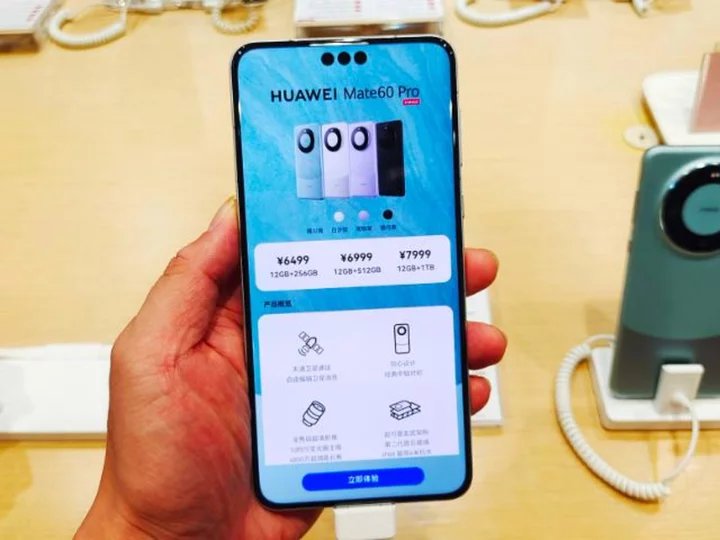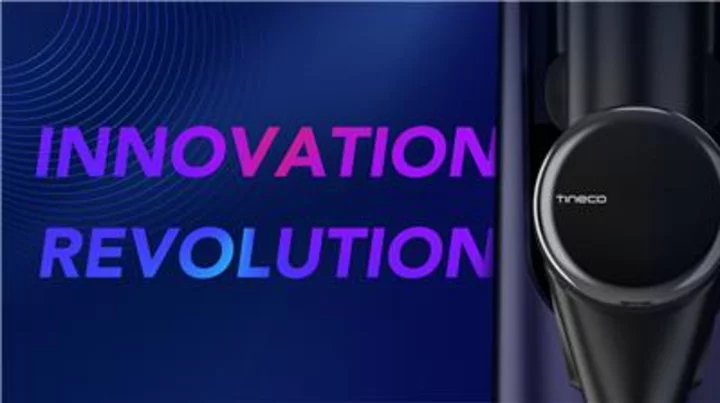ASML Holding NV, the leading provider of chipmaking equipment, is facing tighter restrictions on its ability to work with Chinese customers, a further escalation in the technology clash between Washington and Beijing.
Dutch export control rules will forbid ASML from maintaining, repairing and providing spare parts for controlled equipment without government approval, people familiar with the matter said. Those restrictions are related to new regulations the government published in June that prohibit ASML from shipping some so-called immersion deep ultraviolet lithography machines, its second-most capable machinery, to China without a license beginning in September.
In addition to the Dutch controls, the US is expected to bar ASML from selling even older DUV lithography gear to about half a dozen of Chinese plants without approval from Washington, said the people, asking not to be named because the rules aren’t yet public. Among the China plants the Biden administration is targeting is one operated by Semiconductor Manufacturing International Corp., one of the country’s leading chip companies.
The dual curbs come on top of sweeping export restrictions President Joe Biden administration’s imposed on China last year and threaten to degrade the Chinese semiconductor companies’ capabilities over time. The Communist Party has reacted furiously to the technology curbs, filing a complaint with the World Trade Organization and arguing the US is trying to keep China subservient.
ASML is the leading producer of the lithography equipment needed to produce semiconductors for the most advanced smartphones, computers and other tech gear. The restricted DUV models include the TWINSCAN NXT:2000i and more sophisticated machines. Such equipment is capable of crafting chips as advanced as 5-nanometer, a technology that first became available in 2020.
ASML has never been able to sell its most advanced chipmaking machines to China, which use extreme ultraviolet, or EUV, lithography. That’s because the US and its allies are worried these technologies could be used to advance Chinese military capabilities.
The Biden administration will impose the new curbs on ASML by invoking the Foreign Direct Product Rule, which allows it to limit foreign-equipment suppliers’ sales if their products contain even a small amount of American components, the people said. Reuters previously reported some details of the new US moves to limit ASML’s China business.
Previously, Donald Trump’s administration adopted the FDPR measure to prevent chipmakers using any US tech companies from providing manufacturing services to Huawei Technologies Co. without approval. That move essentially kneecapped the Chinese telecom giant’s once lucrative smartphone business.
The US may also ban ASML from providing maintenance and repair services and supplying spare parts for the restricted machines installed at the six targeted plants without a license, according to one of those people. It is unclear when the US will move ahead with these additional restrictions, the people said.
While the Netherlands had earlier resisted US efforts to apply extra-territorial controls on ASML, the administrations of Biden and Dutch Prime Minister Mark Rutte reached an understanding about the national security necessities of additional restrictions, the people said. The new Dutch regulations are not expected to be affected by the recent collapse of the country’s coalition government.
Representatives for the Dutch government, the US Department of Commerce and ASML declined to comment. Separately this week, ASML said it plans to slow hiring this year due to a downturn in the chip industry and a massive recruiting drive in 2022.
In addition to deterring China from upgrading its semiconductor technology, the new US-Dutch controls may reduce Chinese firms’ existing production capacity for relatively advanced chips over time. The country has limited domestic alternatives for repairing or replacing broken foreign equipment. ASML has a virtual monopoly on critical lithography gear that’s required to make both advanced and legacy chips around the world.
The Biden administration imposed similar controls on the maintenance and repair of American chipmaking with its original export control rules in October. Those restrictions affected ASML’s US peers, including Applied Materials Inc.
--With assistance from Ian King, Jenny Leonard and Amy Thomson.
Author: Cagan Koc, Jillian Deutsch and Alberto Nardelli









